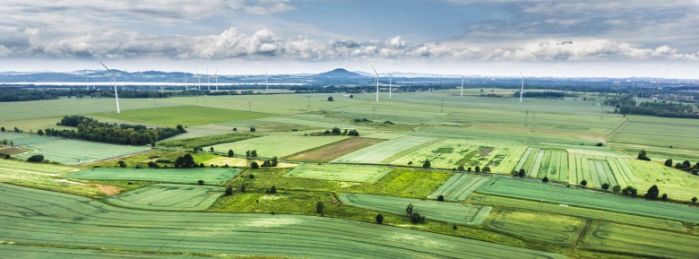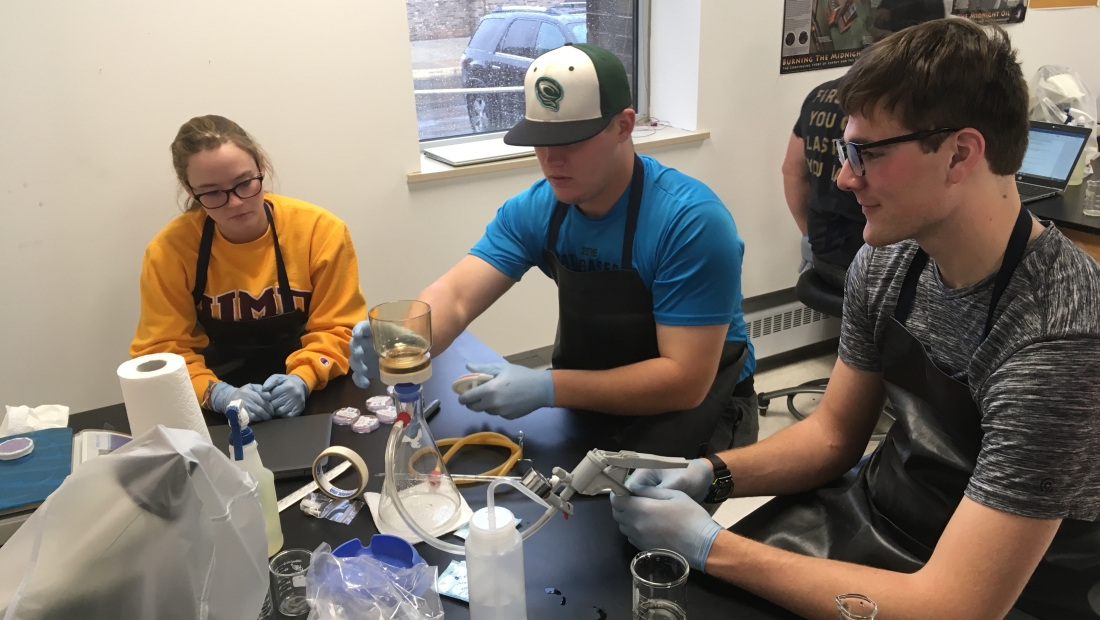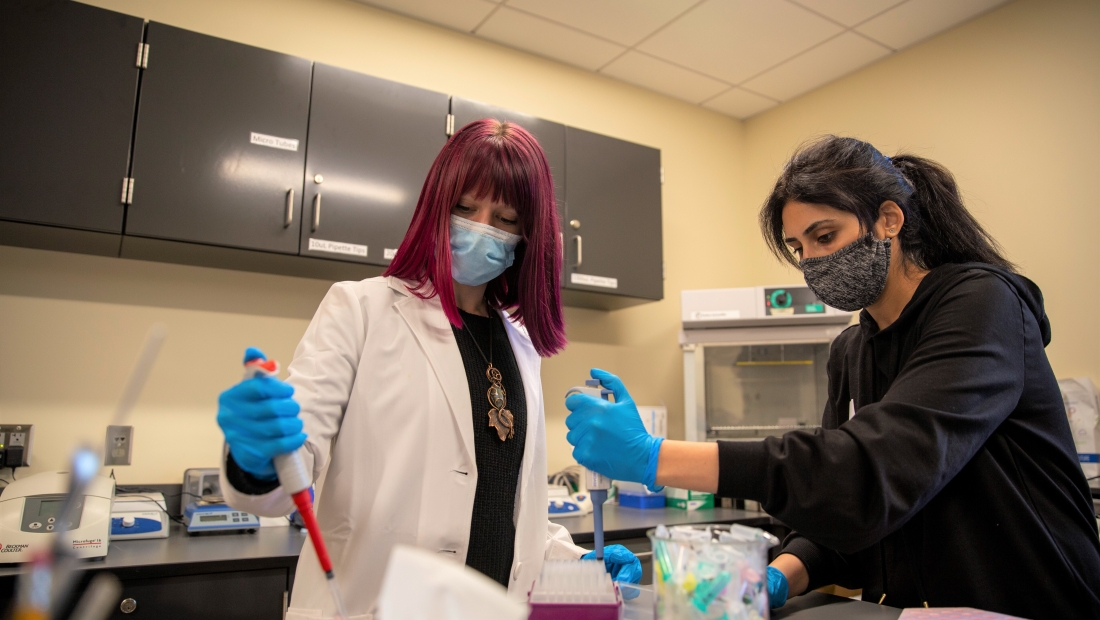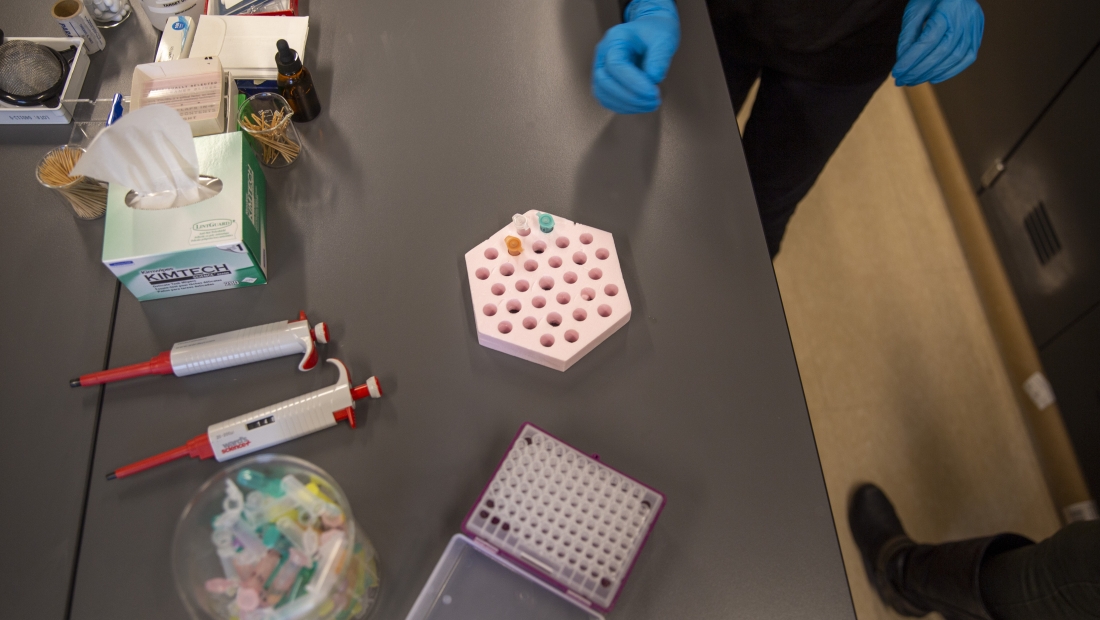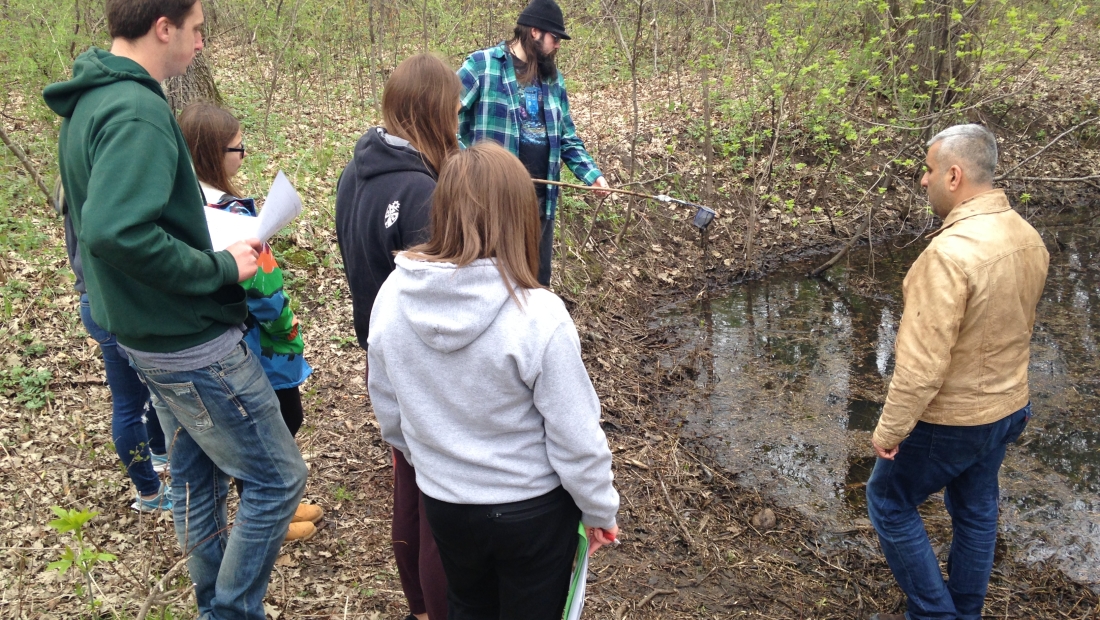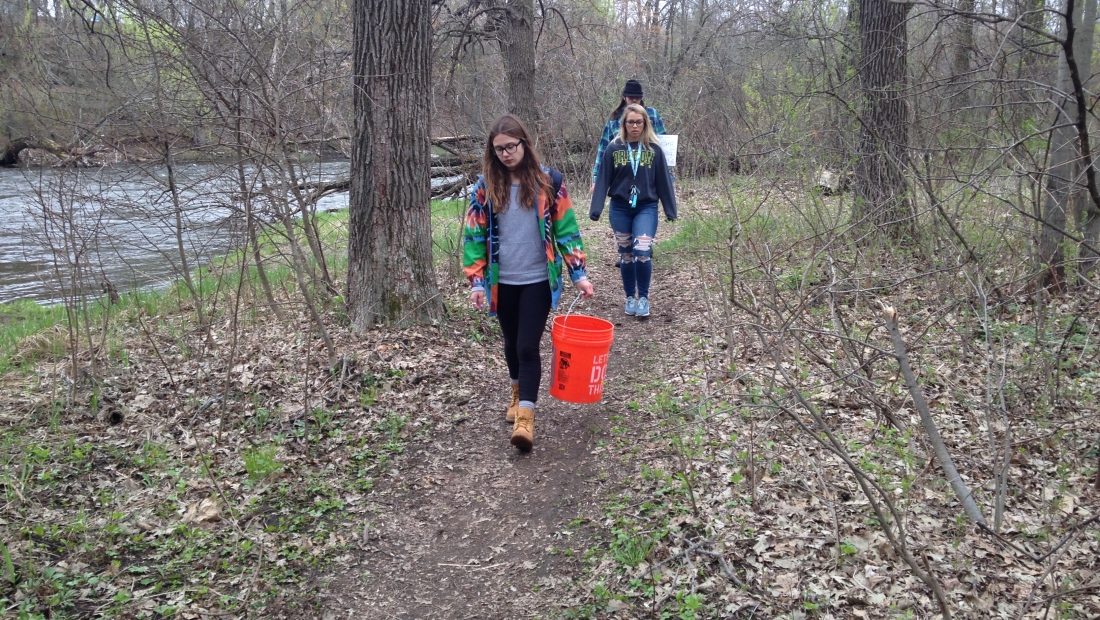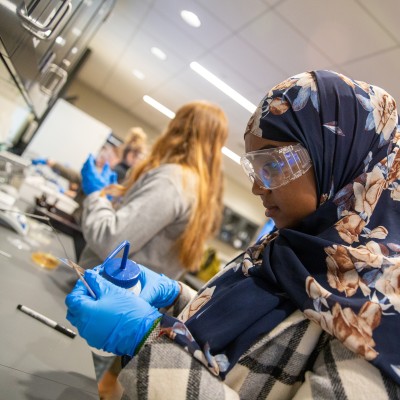DEGREES IN Environmental Science
Environmental Science Associate of Science
By the Numbers
Why Choose This Program
The field of environmental science educates students to conserve the ecosystem where we obtain natural resources. This field prepares you to tackle the challenges of environmental issues. A degree in Environmental Science from SCTCC prepares students to obtain a job in a variety of settings from research to clinical labs.
SCTCC offers an AS Degree in Environmental Science that provides an excellent foundation and the skills needed to prepare students for a four-year degree. The program provides an understanding of natural resources and the human impact on ecological processes.
The SCTCC Environmental Science Degree (AS) is transferable to the Environmental Studies program via an articulation agreement with Bemidji State University.
From Degree to Career
When you choose the Environmental Science degree at SCTCC, you’ll save money on your generals before transferring to get your bachelor's degree. Getting your general classes done at SCTCC provides a good foundation when you are ready to transfer.
At SCTCC, we teach students the necessary skills for the workforce. There are various career choices that our graduates can take, so we equip them with the ability to explain and demonstrate the processes of scientific methods during experimental works and demonstrate and apply environmental science concepts and processes.
Our graduates even know how to use instruments and techniques in laboratory and field works, demonstrate the ability to work independently and as a team in laboratory and field works, and describe the functions and processes of environmental systems. We even teach students to demonstrate and apply the technology of GIS and GPS knowledge for virtualization, how to model environmental issues; and interpret spatial patterns using map concepts.
After graduation, our environmental science students can describe the functions and processes of environmental systems, explain the effects of anthropogenic on the Earth systems, and propose solutions to environmental issues.
Graduates understand that their work can impact the planet, so they know how to analyze quantitative data, utilize critical thinking, ethics, and problem-solving skills. Our students even know how to explore how environmental science can develop a sustainable solution to our environmental issues and they understand concepts, effects, and management of renewable and non-renewable energy.
Quick Glance
- Explain the processes of scientific methods and demonstrate the processes during experimental works.
- Demonstrate and apply environmental science concepts and processes.
- Perform using instruments and techniques in laboratory and field works.
- Demonstrate the ability to work independently and also as a team in the laboratory and field works.
- Understand and apply the technology of GIS and GPS knowledge for virtualization and modeling environmental issues and Interpreting spatial patterns using map concepts.
- Describe the functions and processes of environmental systems.
- Explain the effects of anthropogenic on the earth's systems and propose solutions to environmental issues.
- Analyze quantitative data, critical thinking, ethics, and problem solving.
- Explore how environmental science is able to develop a sustainable solution to our environmental issues.
- Understand concepts, effects, and management of renewable and non-renewable energy.
View all program learner outcomes
Video: Jobs in Environmental Science
Students with an Environmental Science degree from SCTCC have five main career fields they can choose from. Our graduates can work as an environmental scientist, environmental engineer, environmental lawyer, environmental biologist, and environmental geologist.
Environmental Scientist
As an environmental scientist, you can choose to work in a specialized field like oceanographer, climatologist, environmental risk assessment manager, or environmental scientist and specialist (including health). SCTCC graduates can even use their degree to work as environmental science teachers, Geographic Information System (GIS) Specialist, environmental consultant, environmental planner, research analyst in environmental science, or even an energy analyst.
Environmental Engineer
Graduates who want to specialize as environmental engineers can work as agricultural engineers, energy analysts, bioinformatics, and environmental engineering technicians. Our students have even worked as health and safety engineers with the exclusion of mining safety engineers and inspectors.
Environmental Lawyer
SCTCC students interested in pursuing a career as an environmental lawyer are responsible for using the law to find justice for the environment, people, organisms, and wildlife.
Environmental Biologist
Are you a student interested in working as an environmental biologist? Students from our program have the opportunity to work as an ecologist, biogeochemist, marine biologist, wild life biologist, or even a zoologist.
Environmental Geologist
Environmental Science graduates who want to work as an environmental geologist can find careers as paleontologists, hydrologists, and geochemists.
The SCTCC Environmental Science degree has so many options for students so they can find the right career path for them. If you are interested in helping the planet, our program is right for you.
Quick Glance
The following are the five main career fields in Environmental Science
Environmental Scientist
- Oceanographer
- Climatologist
- Environmental risk assessment manager
- Environmental scientists and specialists, including health
- Environmental science teachers
- Geographic Information System (GIS) Specialist
- Environmental consultant
- Environmental Planner
- Research analyst in environmental science
- Energy analyst
Environmental Engineer
- Agricultural Engineer
- Energy analyst
- Bioinformatics
- Health and safety engineers, except mining safety engineers and inspectors
- Environmental engineering technicians
Environmental Lawyer: responsible for using the law to find justice for the environment, people, organisms, or wildlife.
Environmental Biologist
- Ecologist
- Biogeochemist
- Marine Biologist
- Wild life Biologists
- Zoologist
Environmental Geologist
- Paleontologist
- Hydrologists
- Geochemist
More Career Information
Career Fields in Environmental Science
For students who want to continue their education, SCTCC has an agreement with two Minnesota schools to ensure you can pursue your academic dreams. The SCTCC associate’s degree in Environmental Science fully transfers to a bachelor’s degree program at St. Cloud State University and Bemidji State University.
Ready to Take the Next Step?
Are you ready to learn more about the Environmental Science program and being a student at SCTCC?
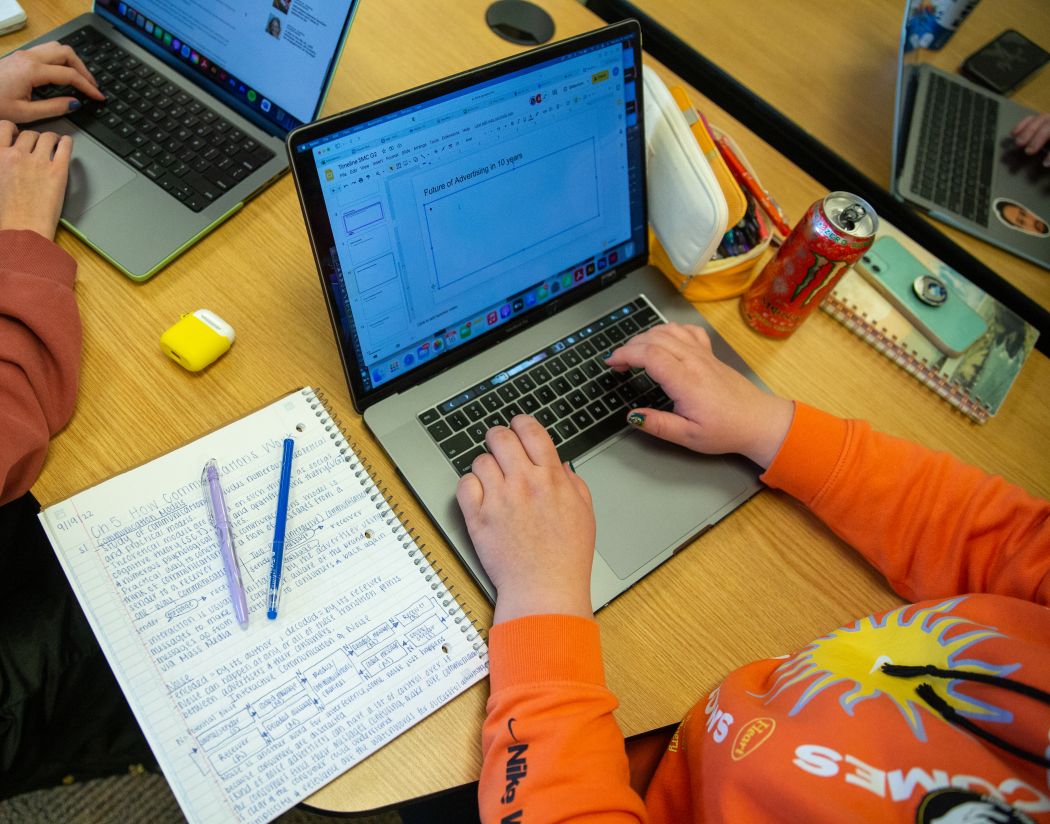
Fill out this form to receive useful information that's specific to your program.
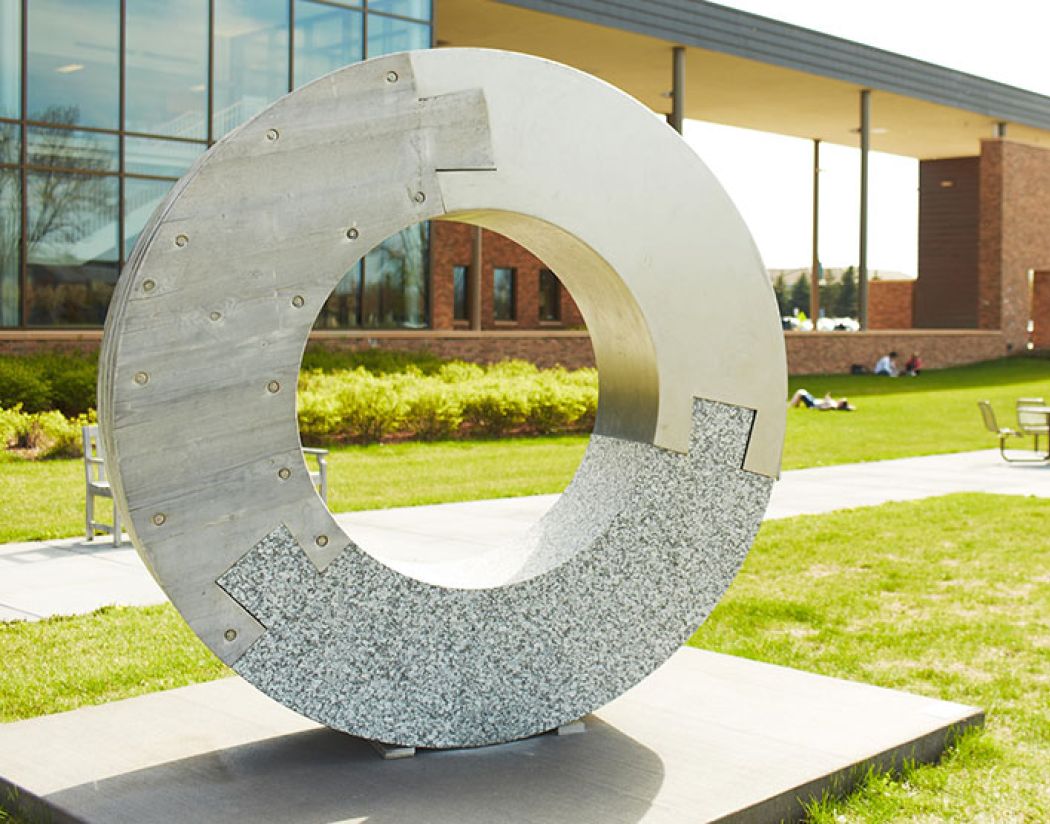
- Call us at 320-308-5089
-
Email us at recruitment@sctcc.edu
- On campus Monday-Friday, 8 a.m.-4:30 p.m.
Visiting campus is an excellent opportunity to learn about SCTCC programs, the application process, and tour the state-of-the-art-labs and classrooms.
Paying for College
Students choose SCTCC for a lot of reasons, but saving money is one reason we hear from almost every student at SCTCC. We’ve got a breakdown of the costs for the program, along with information on financial aid and scholarships.
Apply just once and you are considered for all eligible SCTCC scholarships.

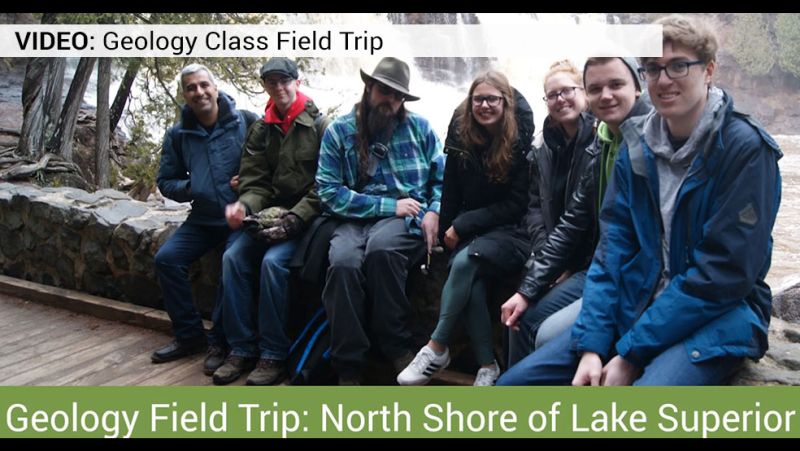
Program Info for Current Students
The Environmental Science Program provides an opportunity for students to work on research projects. Students can conduct research project individually or with a team. This will increase students’ knowledge and skills in the field of environmental science. The field of research could be in the following areas, but are not limited:
Environmental Science and Issues:
- Water Issues and Pollution.
- Air Pollution
- Forest Issues
- Soil Erosion
Medical Geology
- Toxicity and Human Health
While taking courses in the Environmental Science Program, students can conduct a research project which is part of class assignments. At the end of a semester, students have an opportunity to present their projects at the Environmental Science Symposium.
Environmental Science Instructors

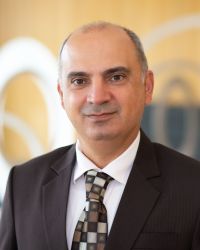
Good Stuff
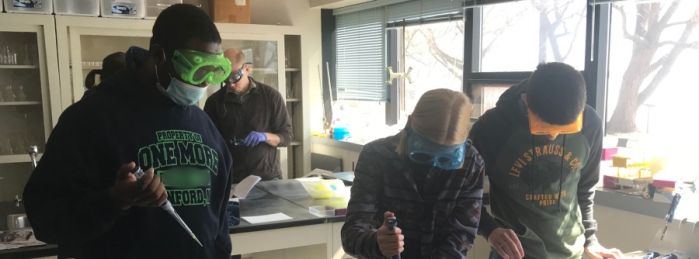
Environmental Science Students Visit Bemidji State
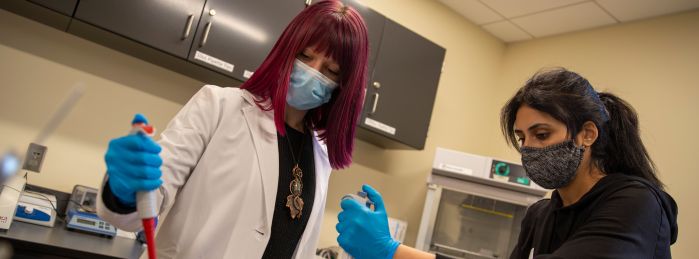
Environmental Science Students get a Sample of DNA Research
